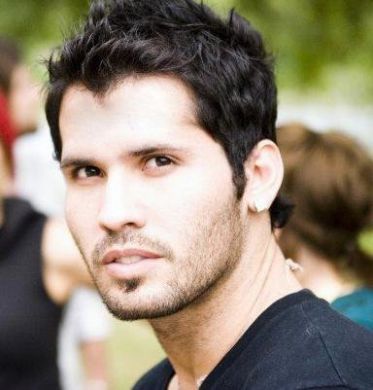|
|
||
|
Pro Tools
FILMFESTIVALS | 24/7 world wide coverageWelcome ! Enjoy the best of both worlds: Film & Festival News, exploring the best of the film festivals community. Launched in 1995, relentlessly connecting films to festivals, documenting and promoting festivals worldwide. We are currently working actively to upgrade this platform, sorry for the inconvenience. For collaboration, editorial contributions, or publicity, please send us an email here. User login |
Aruba International Film Festival
The Aruba International Film Festival (AIFF) quickly became the international film community’s “must-attend” summer event after its opening in July 2010. After 4 intensely exciting years, the festival took a break in 2014 for a complete makeover and now is back with full force to celebrate year 5 from October 7th-11th, 2015. The festival offers a pleasurable and inviting atmosphere for filmmakers, press and film lovers. It serves to not only develop an understanding and appreciation of the art of cinema and filmmaking, but also to inspire, educate and promote emerging local and regional filmmaking talent. This in turn has helped position Aruba as a center of art, culture and creativity, and as a viable destination for international film and commercial productions. The AIFF was founded in 2010 by film producers Jonathan Vieira and Giuseppe Cioccarelli, with artistic direction by 30-year industry veteran Claudio Masenza. Previous editions of the festival have showcased a diverse array of critically acclaimed fiction films and documentaries from every corner of the globe, and have attracted such notable industry names as: Hollywood leading man Richard Gere (Pretty Woman, An Officer and a Gentleman)
 Interview With Puerto Rican Director Angel Manuel Soto for LA GRANJA (2015)
Puerto Rican film LA GRANJA (2015) recently held its international premier at the 5th annual Aruba International Film Festival (AIFF) in competition for the Caribbean Spotlight Series. In a fresh look at the dim side of Puerto Rican life, director Angel Manuel Soto's style pays homage to the likes of Alejandro Inarritu and Guillermo Arriaga, but holds a distinct tone of its own sure to carry Puerto Rican cinema to the next level and demand international attention. In Soto's words: “the film is a metaphor of the auto-destruction of the Puerto Rican society fueled by the oppression of the government in its colonial status, as it is related to the US and the rest of the world.”
In a recent interview with director Angel Manuel Soto, here is what he had to say:
Is this your first feature film as a director? Can you say something about that experience and what it is like to have it screen at international festivals? ANGEL: It is my first feature film. I’ve done shorts before and had them at Cannes, even sold them to Shorts International. But yes, it is my first feature film as a director. My experience directing a feature film was the best and worst experience all in one. It's tough, hard work, a lot of responsibility and extremely hard if you had the budget I had. But then again it's what I love. So, I would do it glad all over again. I would suffer through it everyday. Regarding its presence in festivals, I believe it's a great opportunity and highly needed. I come from pretty much an emerging country in cinema. Puerto Rico has had its history, but it’s been asleep for a while. There is a new wave coming and it looks promising. So the fact that we are here for the whole world to see is a great step for Puerto Rican Cinema. I hope it can get acquired, so that many more films get made. Has it been challenging being a filmmaker in Puerto Rico? ANGEL: It has. Puerto Rico is going through very rough times. Its economy and political status affect a lot the areas where culture and arts are fomented. The help provided by the government is great for movies to come and shoot, but make it a struggle for the local filmmakers because it's expensive and the bureaucratic requirements make it really hard. But then again, I went through the struggle and got this film made, financed entirely by a grant from the Puerto Rico Film Commission. So, even though it is a struggle, La Granja would not have happened if it weren’t for them. Can you say something about Puerto Rican cinema today and where you think it is headed? ANGEL: Lately there has been a boom of small independent film. I like to think that Puerto Rico is going through a New Wave, finding our voice and things to say, in the midst of a lack of identity due in part to our political situation. Many younger kids are coming forward with a lot of energy and there seems to be camaraderie between all of us, which I believe promises a lot. What are your hopes for this film? ANGEL: My hopes with La Granja, apart from making it into festivals and getting it distributed, is that people, producers and other industry professionals can see in me that there is a filmmaker that has something to say, his own voice. A director they can trust with their project, and given the right tools, can take an idea where it needs to be headed. In the end, as all artists, I only want to do what I love for a living.
SUMMARY: "La Granja follows the lives of three unrelated individuals as they struggle in their pursuit of happiness and its repercussions. Barrio La Esperanza. A small sector of a Macondo-like island forgotten by the catastrophic effects of an economical depression and drug addiction. Three lives are pushed to the limit and reveal how their pursuit of happiness dehumanizes them and exposes their animal instincts. Ingrid, a repressed and barren midwife in her 50s, has always wanted a child. While working at the local hospital, she realizes that most of the pregnant women are heroin addicts, making Ingrid wonder if she is better suited to be a mother than they will ever be. The envy and vicious hope pushes Ingrid on a downward spiral with no turning back. At the same time, Fausto, a former boxer and now a cock fighter owner in his 40's, trains his teenage son, Santito, to become a boxing champion. Due to a massive debt in cock fights to the local bookie, Rubén, Fausto is forced to use Santito as the cruel vehicle to get the money he owes. Lastly we have Lucho, a fat kid that commutes in his bike all over town, and who is trying to get the affections of Sara, his stepsister. But when Sara's life is suddenly in danger, Lucho sees the opportunity to be her hero. Paradoxically, Lucho's innocence and good intentions are used by his own family for a greater evil. When he is by himself, Lucho finds a friend on a stray horse tied to a tree, which serves as the perfect metaphor of a society destroyed by the indifference and intolerance of men." - Soto -Interview by Vanessa McMahon
View a trailer of the film here:
23.10.2015 | Aruba International Film Festival's blog Cat. : Interview With Puerto Rican Director Angel Manuel Soto for LA GRANJA (2015) Interviews
|
LinksThe Bulletin Board > The Bulletin Board Blog Following News Interview with EFM (Berlin) Director
Interview with IFTA Chairman (AFM)
Interview with Cannes Marche du Film Director
Filmfestivals.com dailies live coverage from > Live from India
Useful links for the indies: > Big files transfer
+ SUBSCRIBE to the weekly Newsletter DealsUser imagesAbout Aruba International Film Festival Vieira Jonathan Vieira Jonathan The official Aruba International Film festival's blog View my profile Send me a message My festivalThe EditorUser contributions |




















.jpg)








